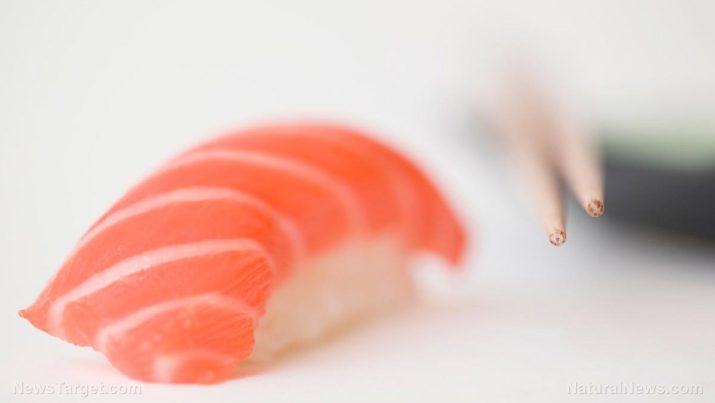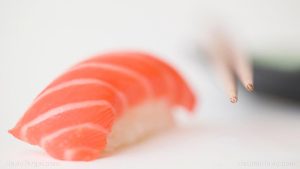
Diphyllobothriasis – causes, side effects and treatments at NaturalPedia.com
Thursday, March 08, 2018 by Michelle Simmons
http://www.naturalpedia.com/diphyllobothriasis-causes-side-effects-and-treatments-at-naturalpedia-com.html

Also known as fish tapeworm infection, diphyllobothriasis can occur when a person consumes raw or undercooked fish contaminated with the parasite Diphyllobothrium latum, commonly known as the fish tapeworm. This type of tapeworm grows in hosts such as small organisms in the water and large mammals that eat raw fish, and is passed through the wastes of animals. When a person consumes raw or undercooked fish contaminated with the larvae of D. latum, the larvae will grow in the intestines. It will take between three to six weeks before they are fully grown. A tapeworm can grow as big as 30 feet long, being the largest parasite to affect humans.

Known side effects of diphyllobothriasis
A person infected with the fish tapeworm may experience one or more of the following signs and symptoms, which include abdominal pain, loss of appetite, sudden weight loss, diarrhea or constipation, vomiting, nausea, fatigue, deficiency of vitamin B12, anemia, and presence of worm eggs or parts in stool. Diphyllobothriasis can often lead to several complications such as vitamin B12 deficiency, which in turn can result in anemia, and intestinal obstruction in severe infections. However, most patients with diphyllobothriasis do not show any signs of illness.
Body systems harmed by diphyllobothriasis
The main body system harmed by diphyllobothriasis is the digestive system.
List of foods or nutrients that prevent diphyllobothriasis
According to an entry published on the website Top10HomeRemedies.com, the foods that can help treat or prevent diphyllobothriasis are coconut, garlic, unripe papaya, pumpkin seeds, carom seeds, and pomegranate tree bark, root, stems, and leaves. Other foods that can cleanse the body of intestinal worms include pineapple, turmeric, cloves, foods rich in beta-carotene, anise, thyme, gentian, barberry, olive leaf, black walnut, and grapefruit seed extract, according to an entry published on the website NaturalRemedies.org. The infection can also be prevented by refraining from eating raw or undercooked fish, cooking fish at 145 F (63 C) for at least 4 minutes, and freezing fish at -4 F (-20 C) or below for 7 days, or at -35 F (-31 C) or below for 15 hours.
Treatments, management plans for diphyllobothriasis
Treatment and management plans for diphyllobothriasis may include taking praziquantel or niclosamide. The infection might require surgical treatment if it resulted in intestinal obstruction. Furthermore, in severe cases of vitamin B12 deficiency and anemia, vitamin supplementation may be needed.
Where to learn more
- Why some people don’t eat sushi: NINE foot tapeworm removed from man’s rectum in Singapore
- Beware: US salmon may be crawling with Japanese tapeworm, say scientists
- 3 common parasites that are literally eating you alive
- 10 Deadly organisms that live in your body
- We All Have Parasites: Symptoms, Cleanses, and 10 Foods That Prevent
Summary
Diphyllobothriasis occurs when a person consumes raw or undercooked fish that is contaminated with the parasite called Diphyllobothrium latum.
Diphyllobothriasis may cause abdominal pain, loss of appetite, sudden weight loss, diarrhea or constipation, vomiting, nausea, fatigue, deficiency of vitamin B12, anemia, and presence of worm eggs or parts in stool.
Diphyllobothriasis harms the digestive system.
Foods that can treat diphyllobothriasis include coconut, garlic, unripe papaya, pumpkin seeds, carom seeds, pomegranate tree bark, pineapple, turmeric, cloves, foods rich in beta-carotene, anise, thyme, gentian, barberry, olive leaf, black walnut, and grapefruit seed extract.
Diphyllobothriasis can also be prevented by refraining from eating raw or undercooked fish and cooking and/or freezing fish at the right temperature.
Diphyllobothriasis can be treated with medications, surgeries, and vitamin supplementation.
Sources include:
Tagged Under: Tags: Diphyllobothriasis





